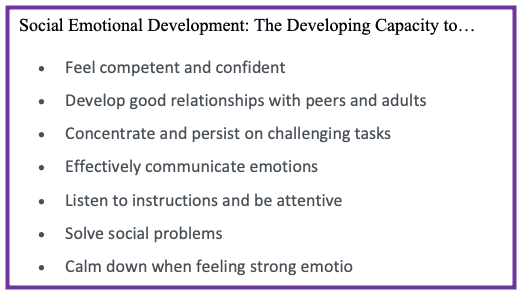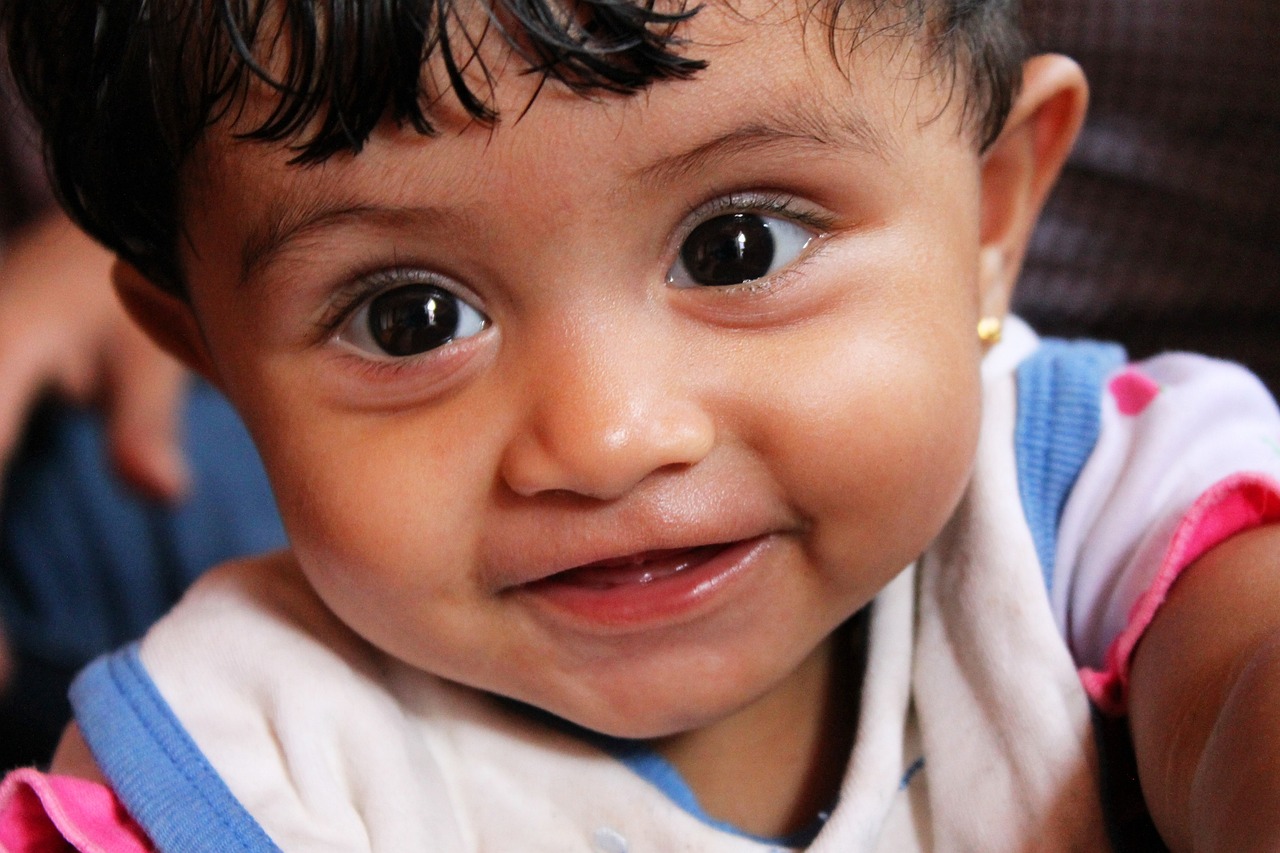by Tweety Yates, Ph.D.
In our recent webinar, “Supporting the Social Emotional Development of Young Children: Ideas, Strategies, and Resources”, we talked about the importance of social emotional development and what that means for us. Young children who have a strong social emotional foundation not only do better academically, but also tend to be happier, have more friends, and show greater motivation to learn.

Below are a few of the highlights discussed during the webinar:
Relationships:
- Infants and young children develop within the context of relationships.
- Strong, positive relationships help children develop trust, empathy, and friendships, as well as begin to regulate, label and manage emotions and problem solve.
- It is important to help infants and young children keep connections and relationships strong when they are disrupted due to family members deployment.
- Ideas for doing this were shared (e.g., family photo albums, video/audio tapes of favorite stories, etc.).
Stages of Learning:
- The stages of learning help us plan how to teach children social emotional skills.
- The stages were described as:
- Show and Tell: the acquisition stage when children need a skill explained and demonstrated
- Practice Makes Perfect: refers to the need to have many opportunities to practice and build fluency
- You Got It: the stage of learning when a child knows the skill well enough to use over time and in new situations.
- Each learning stage requires intentional, purposeful planning on our part.
Friendship Skills:
- Relationships with caregivers play an important role in the development of friendship skills for infants and young children.
- When children are successful at making friends, they have opportunities to learn and practice many social skills such as cooperation, sharing, turn taking, problem solving, and conflict resolution.
- Several discrete behaviors were discussed that young children engage in during play that seem to be directly related to having friends.
- Teaching these skills can help young children from military families have the skills needed to develop new friendships if they experience multiple moves.
Emotional Literacy Skills:
- Emotional Literacy is the ability to identify, understand, and express emotions in a healthy way.
- When children have a large and more complex feeling vocabulary, they are better able to make finer discriminations between feelings and better communicate with others about what they are feeling.
- Emotional literacy begins early as we label an infant’s feelings during diaper changing, help a child express what they are feeling around their military family’s experiences (e.g., deployment, moving, no-notice deployments, parent away for training/school) or teach strategies to use when feeling angry.
Many resources were shared during the webinar to support the development of social emotional skills. The recorded version of the webinar and a link to additional resources can be found at the event page.















